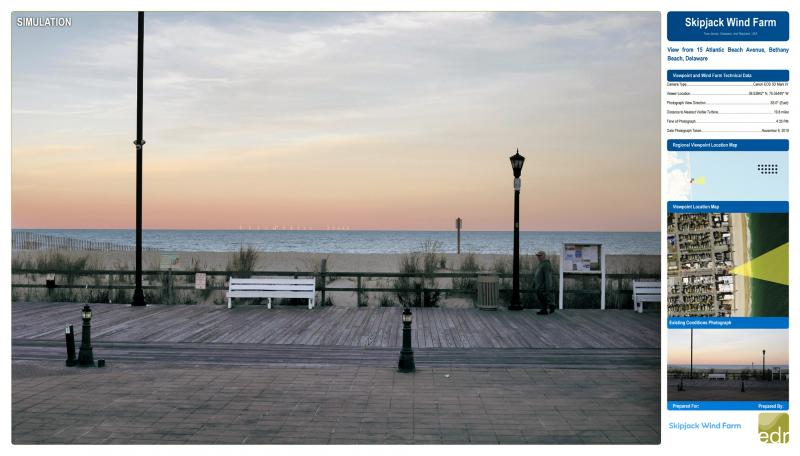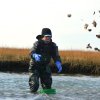Offshore wind is a new American industry, so it is natural for Delaware residents to have questions about the Skipjack Wind Farm proposed by my company, Ørsted.
I’d like to answer some common questions I receive from residents interested in offshore wind and address a few myths spread by oil and gas drilling advocates who oppose the project.
Skipjack is an offshore wind project comprising of up to 15 turbines off the Delaware coast. It will generate enough renewable energy for 35,000 homes. The nearest turbine would be 19 miles from Bethany Beach. By comparison, America’s first offshore wind farm, the Block Island Wind Farm in Rhode Island, is 3.5 miles from shore.
On clear days, Skipjack will be faintly visible on the horizon. On cloudy days, it may not be visible at all.
How will Skipjack benefit Delaware? First, Delaware will become an unquestioned leader in America’s transition to renewable energy. By hosting Skipjack’s interconnection site, Delaware would be the second state in America to connect carbon-free offshore wind energy with the homes that need it.
Second, Skipjack has no impact on Delaware electricity costs because our offshore renewable energy credit agreement is with Maryland.
Lastly, Ørsted would provide up to $18 million in improvements at Fenwick Island State Park under a proposed partnership with the Department of Natural Resources and Environmental Control in exchange for placing Skipjack’s interconnection site at the park. While preliminary improvement ideas have been made available for public comment, Ørsted and DNREC are committed to working with local communities to find solutions that benefit all Delawareans.
What is an interconnection site? It is a roughly one-acre facility where the energy is brought onshore to connect to the grid. Ørsted determined that the park is the best site to connect onshore because it is a direct line to the Skipjack site, providing minimum disruption to the environment. Skipjack’s interconnection facility will be fully enclosed and less than three stories tall. Working with local conservation organizations and our engineers, we plan to use native trees and plants to ensure the facility blends in with the landscape. The interconnection site would increase the park’s developed area by just 0.2 percent.
To bring the energy onshore, Ørsted will use an environmentally friendly method to pull an eight-inch cable deep underground from the wind farm to shore without impacting the beach or digging a trench. This process all but eliminates disruption on the surface, and the cable remains buried for the life of the project.
Offshore wind can also benefit tourism. A University of Rhode Island study found that tourism increased 18 percent on Block Island after that wind farm went into operation. Study author Corey Lang wrote he believes the wind farm, “has had a positive effect on tourism.”
By developing Skipjack nearly 20 miles offshore, we reduce proximity to bird concentration areas. Ørsted also uses observers and underwater hydrophones to watch and listen for marine mammals. We follow agency guidance and pause construction when animals are nearby. Horseshoe crabs will be protected by avoiding nearshore construction during spawning season.
Ørsted undergoes a rigorous federal review led by the Bureau of Ocean Energy Management, in consultation with the Department of Defense, U.S. Fish and Wildlife, and other agencies. Ørsted can only obtain construction and operation permits after questions about electromagnetic fields, radar, public health and wildlife are satisfied.
Offshore wind and fishing have a mutually beneficial relationship, as well. Block Island’s recreational fishing captains report that turbine foundations serve as artificial reefs for fish populations. Ørsted looks forward to working with commercial and recreational fishermen to ensure we are a good neighbor and a responsible developer.
Ørsted is committed to making Skipjack a project Delaware can be proud of. Separating fact from fiction is part of that process. We welcome the opportunity to work with residents to ensure your voice is heard as Delaware helps to lead America’s transition to renewable energy.
Joy Weber
development manager, Ørsted’s Skipjack Wind Farm























































